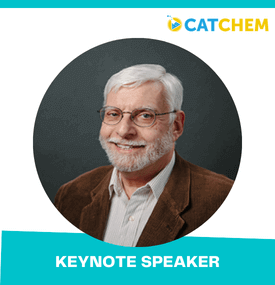
Joseph S Merola
Virginia Tech, USA
Combining simple ligands to get specific results – A toolbox approach to catalyst design
Biography
Joseph S. Merola is a
Professor of Chemistry at Virginia Tech and a graduate of Carnegie-Mellon
University (B.S. Chemistry, 1974). He
received his Ph.D. in chemistry in 1978 from M.I.T under the direction of
Professor Dietmar Seyferth. In 1978, he
joined the Corporate Research Laboratories of Exxon Research and Engineering Co
in New Jersey where he carried out research on catalysis for utilizing CO or
CO/H2 to make higher value chemicals. In 1987, he joined Virginia Tech where he has
been ever since, although he has held many different roles over his time
there. His research into C-H and other
element-H activation chemistries, catalysis with amino acid ligands and most
recently the biological activity of the same complexes used for catalysis has
resulted in over 100 publications. Professor Merola is a Fellow of the American
Chemical Society and a Fellow of the American Association for the Advancement
of Science.
Abstract
Marvelous results have come from
research into designing and synthesizing complex ligands for metals to
influence specific reactions. The one
drawback from this approach is that, often, the ligand synthesis is complicated
and produces low yields. Further, the
designed ligand is often useful for a specific substrate. The work presented in this talk will delve
into our research on a toolbox approach to catalyst design – using inexpensive,
readily-available ligands (such as amino acids) in combination with other
simple, readily-available ligands (such as Cp and substituted variants or
N-heterocyclic carbenes (NHCs) to accomplish the desired effect. The combinatorial effect of mixing and
matching simple ligands on catalytic metals such as Ru, Rh or Ir can yield
appropriate systems for a given reaction without the need for complex ligand
design and synthesis. This talk will use
asymmetric transfer hydrogenation (ATH) as a prototype system for this toolbox
approach.